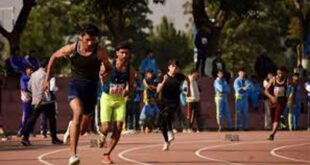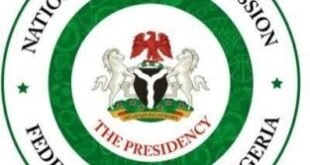The Business Impact of Hosting Major Sporting Events
Major sporting events bring more than just matches. They create a short-term economic shift in the areas where they take place. Local vendors, transport providers, and hospitality services often see a sharp rise in daily sales. This is not just limited to the event itself but extends to surrounding businesses that benefit from increased foot traffic and consumer activity.
Many economic reports show that revenues can double or triple during match weekends. This is particularly true in places where events are frequent and infrastructure is well-prepared. According to regional studies, hotels in host cities report near full occupancy during national tournaments. Similar results apply to digital services tied to sports, especially in betting, content, and mobile usage. Activity on platforms such as Afropari increases notably when events are broadcast or streamed live, suggesting a parallel spike in online interaction.
The full impact of sporting events reaches beyond stadiums. Their economic value spreads across cities through spending, online activity, and local demand. This ripple effect is felt by various sectors, including retail, transportation, and entertainment.
Local Commerce and Infrastructure
Local businesses near stadiums or event venues often prepare months ahead. Food stalls, delivery services, bars, and souvenir shops experience a surge in clients. This peak forces many to hire temporary staff or increase their stock levels. The financial gains come from several sources:
- Foot traffic increases significantly before and after games.
- Visitors spend on transportation, meals, and local experiences.
- Temporary partnerships emerge with delivery platforms and advertisers.
- Some betting services also integrate local businesses through affiliate deals. This helps street-level commerce connect with the online sports audience.
During match-heavy weekends, the rise in betting activity can support not just bookmakers, but nearby services too. For instance, users checking odds through Afropari mobile are also likely to order from local restaurants, boosting demand in multiple sectors.
Digital Sports Interaction and New Opportunities
Modern sports engagement has moved online. Social platforms, streaming services, and betting apps combine live commentary with market activity. This change has given rise to a secondary digital economy. Sports fans do not just watch – they engage, compare, predict, and often bet.
Platforms that allow mobile wagering see more users during large events. The interest in predictions, real-time odds, and interactive content contributes to time spent on these apps. One growing trend is the use of Afropari during league tournaments. These moments bring an intense wave of app downloads and transactions.
This digital wave also benefits content creators, sports analysts, and event promoters. Businesses that offer “watch-and-win” campaigns or viewer-based rewards get more exposure. The data collected during events also helps organizers and sponsors improve future marketing campaigns. All of this generates more investment in both the tech and retail environments of the region.
Social Engagement and Broader Participation
Sports events encourage group activity. This applies not only to match attendance, but also to online communities and fan groups. They follow players, share opinions, and often influence betting behaviour. Within these circles, certain topics generate consistent interest.
One example is the growing recognition of women in eSports. While many events still focus on traditional men’s football or basketball, the digital gaming community has broadened. Female-led teams and streamers attract sponsorships, media coverage, and betting markets. This shift creates new consumer segments and alters how brands approach sports-related campaigns.
In urban areas, cafés, lounges, and sports bars now show both real and virtual competitions. These hybrid spaces serve fans who want more than just the final score. The economic result is clear: more viewers means more spending.
Final Remarks on Sports and Local Economies
Business owners now understand the value of the sports calendar. They track dates and plan for surges. For betting platforms and retailers, it is not just about the match – it is about the wave of demand surrounding it.
Sports tourism, digital betting, and on-site commerce form a chain. When well-managed, each part supports the other. Cities that promote sporting events also promote local business. This connection between leisure and income is now essential for many regional economies.
The cycle continues. More matches lead to more demand, which leads to more services. With the right planning, even small businesses can benefit. The key lies in recognizing when fans will spend and preparing for their return.
 Info Malang Raya Its All About World News
Info Malang Raya Its All About World News



